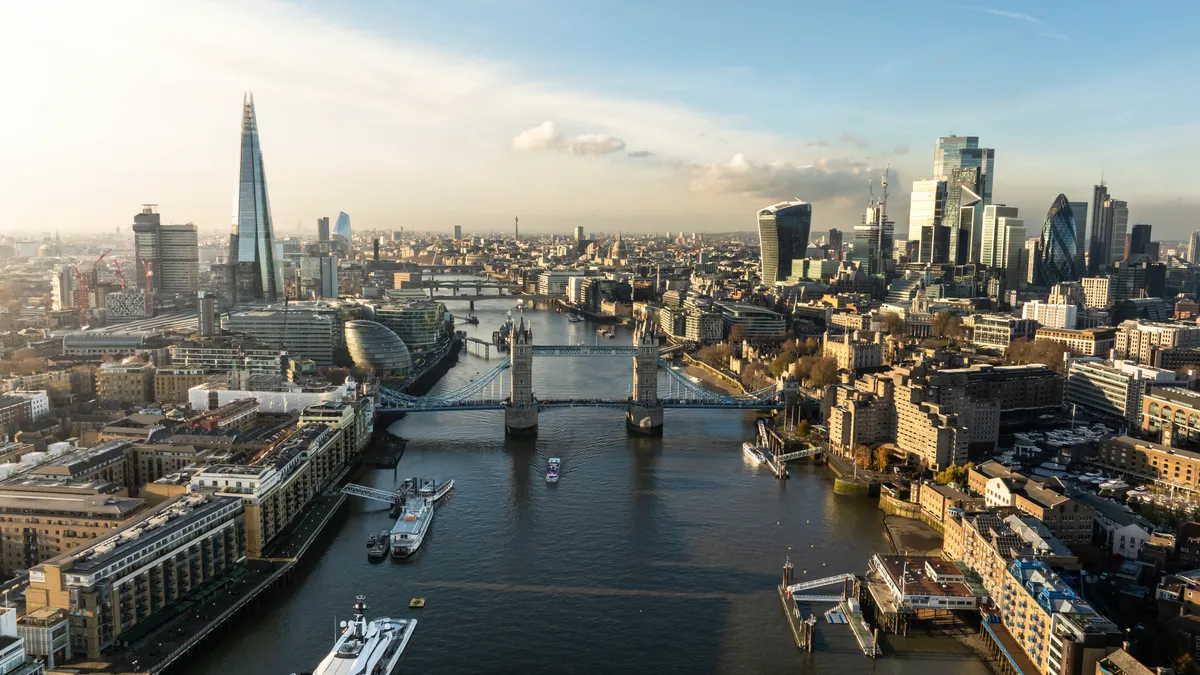Dive Brief:
- London-based Balfour Beatty has entered an agreement with British advanced materials engineering firm Versarien to develop a range of low-carbon, graphene-infused, 3D-printable mortars, Versarien announced in an Oct. 1 news release.
- Balfour Beatty and Versarien are developing the mortars for use in civil construction, per the release.
- The two companies will test the materials’ usage in real-world applications via Balfour Beatty’s Highways business, according to the release. The research team will measure the materials’ performance, durability and cost-effectiveness compared to traditional construction materials.
Dive Insight:
Personnel on the project will formulate three types of mortar, according to the release. One will be based on local materials and two will be enhanced with Versarien's proprietary graphene admixture, Cementene.
Together, the team will also look to establish a robust U.K.-based supply chain for the material. Facets of this work include:
- Identifying local suppliers.
- Integrating the graphene admixture.
- Implementing quality control protocols.
- Creating distribution channels and sales frameworks for both domestic and international markets.
Versarien has previously partnered with Balfour Beatty through the British National Highways’ Roads Research Alliance, which aims to progress innovative road projects in the U.K. construction space, and Digital Roads of the Future, a University of Cambridge project designed to evolve the country’s road network.
“We are delighted to be working with Balfour Beatty and their Highways business on this project to further develop 3D printable construction materials enabling low-carbon, efficient construction solutions,” said Stephen Hodge, Versarien’s CEO, in the release.
Balfour Beatty did not respond to questions regarding whether it would test the materials in the U.S.
Other researchers and companies are also paying close attention to 3D printing, such as the Massachusetts Institute of Technology team that created 3D-printed glass bricks that it says have a crush strength comparable to that of concrete blocks.
In addition, Greeley, Colorado-based Alquist 3D recently created a nearly 8,000-square-foot, 20-foot-high 3D-printed expansion of retail giant Walmart’s online pickup and delivery space at a store in Athens, Tennessee.












